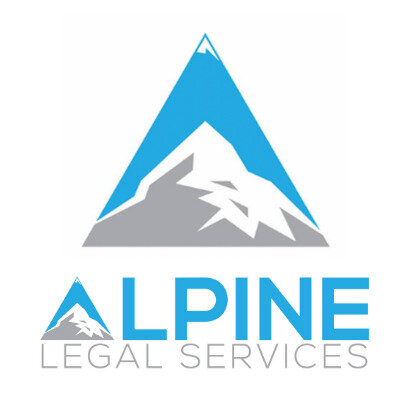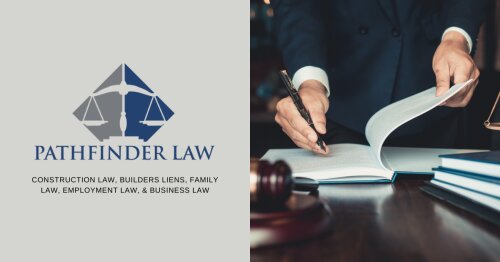Best Land Use & Zoning Lawyers in Abbotsford
Share your needs with us, get contacted by law firms.
Free. Takes 2 min.
Free Guide to Hiring a Real Estate Lawyer
List of the best lawyers in Abbotsford, Canada
About Land Use & Zoning Law in Abbotsford, Canada
Land use and zoning law in Abbotsford, British Columbia, governs how land within the city limits can be used or developed. Zoning regulates the types of activities allowed on properties-such as residential, commercial, agricultural, or industrial uses-and dictates specific rules regarding lot size, building height, setbacks, parking, and more. The City of Abbotsford uses its Official Community Plan (OCP) and Zoning Bylaws to manage growth, preserve farmland, protect the environment, and keep neighborhoods livable. Property owners, developers, and residents must comply with these local regulations when making changes to land or structures.
Why You May Need a Lawyer
Land use and zoning matters can be complex and sometimes contentious. Common situations where legal help becomes necessary include:
- Applying for zoning bylaw amendments or variances.
- Appealing municipal decisions regarding land development.
- Disputes with neighbors or city officials over land use or building compliance.
- Interpreting zoning maps, bylaws, or land use designations.
- Due diligence during the purchase or sale of real estate.
- Protecting property rights or objecting to developments nearby.
- Assisting with subdivision applications or development permits.
- Seeking exemptions or special permissions based on hardship or unique circumstances.
A lawyer experienced in local land use and zoning law can help you navigate the regulatory process, gather required documentation, negotiate with authorities, and represent you in hearings or appeals.
Local Laws Overview
Abbotsford's land use is primarily governed by the City's Official Community Plan (OCP) and Zoning Bylaw. Key aspects include:
- Zoning Designations: Every parcel of land is assigned a zoning category, such as residential, commercial, industrial, agricultural, or institutional. Each category has permitted uses and specific regulations.
- Zoning Bylaws: These contain detailed provisions about permitted uses, density (number of units or floor area), height limits, setbacks, parking requirements, and restrictions on signage or noise.
- Development Permits: Certain properties, especially in environmentally sensitive or designated development permit areas, require special permits with guidelines on building form, landscaping, and environmental protection.
- Subdivision Control: Rules dictate how land can be divided into new parcels, with requirements for servicing, road access, and lot size.
- Official Community Plan (OCP): The OCP sets out long-term vision and land use policies, influencing rezonings and development approvals. Amendments to either the OCP or zoning bylaws often require public hearings and council approval.
- Agricultural Land Reserve (ALR): Much of Abbotsford is within the protected ALR, subject to additional provincial restrictions designed to preserve farmland and limit development.
It's important to consult the most current bylaws and maps or speak with city staff if you are unsure about your property’s status or how laws apply to you.
Frequently Asked Questions
What is zoning, and how does it affect my property in Abbotsford?
Zoning is a system that divides the city into different areas-or zones-with rules about how land and buildings can be used. Your property’s zoning regulates what kinds of activities and structures are allowed, such as whether you can build a duplex, operate a business, or subdivide your land.
How can I find my property's zoning designation?
You can check your property's zoning by referring to Abbotsford’s interactive zoning map on the city’s website, reviewing your property tax notice, or contacting the City’s Planning Department for assistance.
What should I do if I want to use my property in a way that current zoning does not allow?
You can apply to the city for a zoning bylaw amendment or a variance. This usually involves submitting an application, paying fees, and participating in a public consultation and council review process.
Do I need a permit to renovate or build on my land?
Most renovations or new construction require a building permit, and depending on the location, you may also need a development permit, especially in designated areas like hillsides, the ALR, or near watercourses.
What is the Official Community Plan (OCP), and why does it matter?
The OCP is Abbotsford’s long-term policy document that guides how land is developed and used. Any significant change to zoning or large development must be consistent with or seek amendment to the OCP.
Can I appeal a decision the city makes about my land use application?
Yes, you can appeal certain city decisions, such as the denial of a development variance or permit, to the Board of Variance or through other official channels. The process and timelines are outlined in local regulations.
What is the Agricultural Land Reserve (ALR), and how does it affect Abbotsford properties?
The ALR is a provincial land use zone that restricts non-agricultural development and subdivision on farmland to protect agriculture. Many Abbotsford properties are in the ALR, and additional permitting is required for changes not directly related to agriculture.
Can I subdivide my property in Abbotsford?
Subdivision is possible but is subject to zoning restrictions, minimum lot sizes, servicing requirements, and, if in the ALR, provincial regulations. You must submit an application to the city for approval.
What happens if I violate zoning bylaws?
Violations can result in stop work orders, fines, or legal action by the city. You may be required to undo any changes or construction made without proper permits.
Do I need a lawyer for zoning and land use matters?
While not always mandatory, hiring a lawyer is highly recommended if you are dealing with complex rezonings, land use disputes, objections to developments, or legal actions taken by or against you regarding your property.
Additional Resources
Here are some resources and organizations that can provide more information or assistance:
- City of Abbotsford Planning & Development Services: The primary local authority for zoning, permitting, and land use questions.
- Official Community Plan & Zoning Bylaw Documents: Available through the City of Abbotsford’s website or at city hall for review.
- Agricultural Land Commission (ALC): Oversees the Agricultural Land Reserve in British Columbia.
- Fraser Valley Real Estate Board: Useful for buyers or sellers needing land use information during transactions.
- B.C. Laws Website: Access the Local Government Act and related provincial laws governing zoning and subdivision.
- Local Legal Clinics or Law Society of British Columbia: For lawyer referrals and basic legal advice.
Next Steps
If you need legal assistance with a land use or zoning issue in Abbotsford:
- Gather all relevant documents, such as property title, zoning maps, bylaws, correspondence, or permit applications.
- Clarify your goals or the problem you are facing-whether it is a dispute, development approval, bylaw amendment, or an appeal.
- Contact a lawyer who specializes in municipal, land use, or real estate law, preferably with experience in Abbotsford or Fraser Valley.
- Schedule a consultation to discuss your case, learn your rights and options, and plan your next steps.
- If necessary, consult the city’s planning department to access public records or obtain preliminary guidance before meeting your lawyer.
Taking prompt action can help you protect your interests, avoid costly mistakes, and ensure the sustainable and legal use of your property.
Lawzana helps you find the best lawyers and law firms in Abbotsford through a curated and pre-screened list of qualified legal professionals. Our platform offers rankings and detailed profiles of attorneys and law firms, allowing you to compare based on practice areas, including Land Use & Zoning, experience, and client feedback.
Each profile includes a description of the firm's areas of practice, client reviews, team members and partners, year of establishment, spoken languages, office locations, contact information, social media presence, and any published articles or resources. Most firms on our platform speak English and are experienced in both local and international legal matters.
Get a quote from top-rated law firms in Abbotsford, Canada — quickly, securely, and without unnecessary hassle.
Disclaimer:
The information provided on this page is for general informational purposes only and does not constitute legal advice. While we strive to ensure the accuracy and relevance of the content, legal information may change over time, and interpretations of the law can vary. You should always consult with a qualified legal professional for advice specific to your situation.
We disclaim all liability for actions taken or not taken based on the content of this page. If you believe any information is incorrect or outdated, please contact us, and we will review and update it where appropriate.












